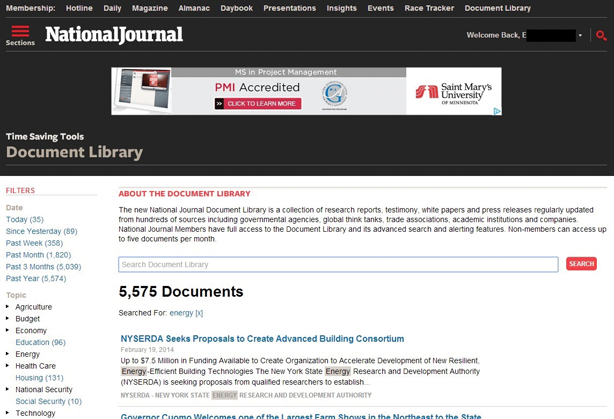National Journal Enhances Membership with Digital Document Library
Searchable database hosts tens of thousands of primary documents.
BY CAYSEY WELTON

National Journal rolled out a new database for its members featuring thousands of policy-related primary documents. Similar to an academic database, the Document Library aggregates a collection of research reports, whitepapers, press releases and a host of other information that’s aimed at helping members do their jobs better.
National Journal Group president, Bruce Gottlieb, says there was a clear need to develop the product for the brand’s audience. “A big part of their [members and subscribers] job is staying on top of information,” he says. “In many cases the source material is just as useful as a write up. What this allows us to do is give people one place to access a direct source in order to stay on top of fast moving, complicated information.”
Gottlieb says that the historical success of similar material was a considerable factor when the company decided to develop the library. However, he says that it ultimately came down to maintaining a product-driven approach.
And that approach is essential for National Journal because Gottlieb says better products “allow people to use their time effectively,” adding, “We see ourselves in the time management business.”
Members and subscribers have full access to the library, and nonmembers will be given limited access. And the documents are relevant to individuals in both the public and private sector.
Ad-Based Revenues
The library is monetized through display advertising, which is one of the company’s main pillars of revenue (in addition to events and sponsored newsletters). Gottlieb discloses that the company will be testing more ways to generate revenue through the new platform, specifically with native advertising. “If a company has a whitepaper and wants to include it and we think it’s relevant we can build that in,” he says.
Nevertheless, he stresses that the true value proposition is gaining the ability to further segment the audience while also connecting each of its communities, because National Journal’s long-term goal is to create a two-way communication vertical between the reader and the publisher. ![]()